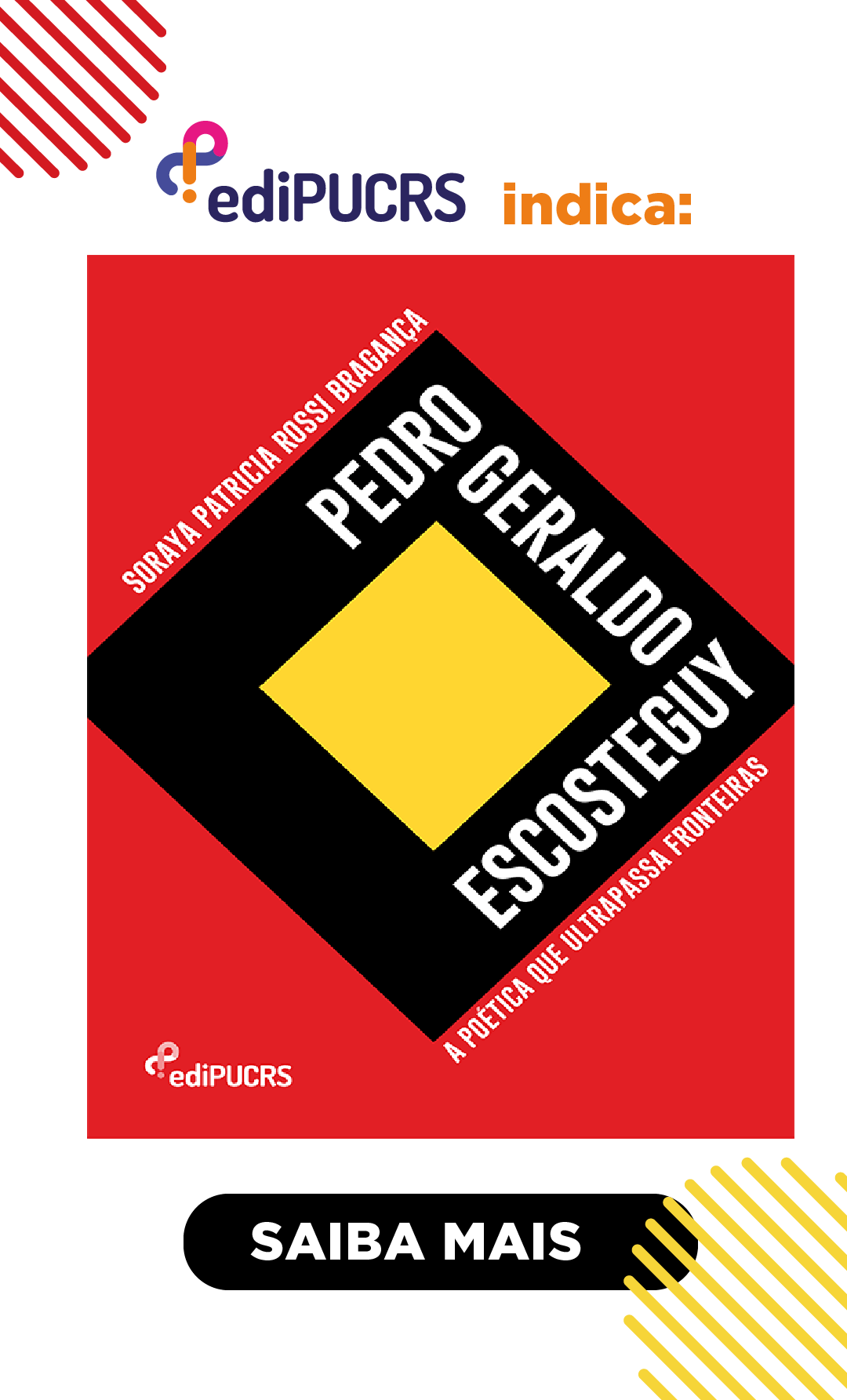The authorial presence in Finisterra, by Carlos de Oliveira
DOI:
https://doi.org/10.15448/1983-4276.2019.2.34948Keywords:
Author. Finisterra. Carlos de Oliveira.Abstract
Movements such as russian formalism, new criticism and french structuralism argued that criteria such as author and intention should be abolished from the critic horizon to establish the condition of objectivity necessary for the scientific study of literary works. However, ultimately, our experience of readers continues to tell us that such criteria play an important role in building the meaning of works. In this brief analysis of Finisterra, by Carlos de Oliveira, a complex narrative, which at first sight weakens the signs of authorship, we propose a “intermediary way” for the author category approach, avoiding, on the one hand, what W.K. Wimsatt (1946) calls intentional fallacy, “which sustains the author’s intention as a criterion for any valid interpretation of the text”, and, on the other hand, what Paul Ricoeur calls “fallacy of the absolute text”, that is, “the treatment of the text as an entity without author” (RICOEUR, 1976, p. 42).Downloads
References
BOOTH, Wayne C. A retórica da ficção. Lisboa: Editora Arcádia, 1980.
ECO, Umberto. Obra aberta: forma e indeterminação nas poéticas contemporâneas. São Paulo: Perspectiva, 2015.
GENETTE, Gérard. Nouveau discours du récit. Paris: Seuil, 1983. https://doi.org/10.2307/1772332
GUERREIRO, António. A textualização do real (a partir de Finisterra de Carlos de Oliveira), Colóquio/Letras, Lisboa, v. 1, n. 104/105, p. 79-84, jul. 1988.
JANNIDIS, Fotis. “Author”. In: HERMAN, David; JAHN, Manfred; RYAN, Marie-Laure (org.). Routledge Encyclopedia of Narrative Theory. London-New-York: Routledge, 2005. p. 85-86. https://doi.org/10.1177/09639470070100050603
KINDT, Tom; MÜLLER, Hans Harald. The implied author. Concept and controversy. Berlim: Gruyter, 2006. https:// doi.org/10.1515/arbi.2008.084
LANDA, José Ángel García. Perspectiva. In: LANDA, José Ángel García. Acción, relato, discurso: estructura de la ficción narrativa. Salamanca: Ediciones Universidad Salamanca, 1998. p. 184-192.
LEPECKI, Maria Lúcia. “Carlos de Oliveira: entre narrativa e poesia”. In.
LEPECKI, Maria Lúcia. Meridianos do texto. Lisboa: Assírio e Alvim, 1979. p. 203-213.
MARTELO, Rosa Maria. Casas destruídas. A revisitação de Casa na duna em Finisterra de Carlos de Oliveira. Línguas e Literaturas: Revista da Faculdade de Letras, Porto, v. 18, p. 251-260, 2000. https://doi.org/10.17771/pucrio.acad.16081
MOURÃO, Luís. O Agrimensor da sombra. In: MOURÃO, Luís. Um romance de impoder. A paragem da história na ficção portuguesa contemporânea. Braga-Coimbra: Angelus Novus, 1996. p. 267-302.
OLIVEIRA, Carlos de. Finisterra. Paisagem e Povoamento. Lisboa: Assírio e Alvim, 2003.
RICOEUR, Paul. Teoria da interpretação. O discurso e o excesso de significação. Lisboa: Edições 70, 1976.
ROBBE-GRILLET, Alain. Por um novo romance. São Paulo: Documentos, 1969.
SEIXO, Maria Alzira. Escrever a terra – sobre a inscrição do espaço no romance português contemporâneo. In: SEIXO, Maria Alzira. A palavra do romance: ensaios de genologia e análise. Lisboa: Livros Horizonte, 1986. p. 69-81. https://doi. org/10.3726/978-3-0352-6554-5/10
Downloads
Published
How to Cite
Issue
Section
License
Copyright
The submission of originals to Navegações implies the transfer by the authors of the right for publication. Authors retain copyright and grant the journal right of first publication. If the authors wish to include the same data into another publication, they must cite Navegações as the site of original publication.
Creative Commons License
Except where otherwise specified, material published in this journal is licensed under a Creative Commons Attribution 4.0 International license, which allows unrestricted use, distribution and reproduction in any medium, provided the original publication is correctly cited.





